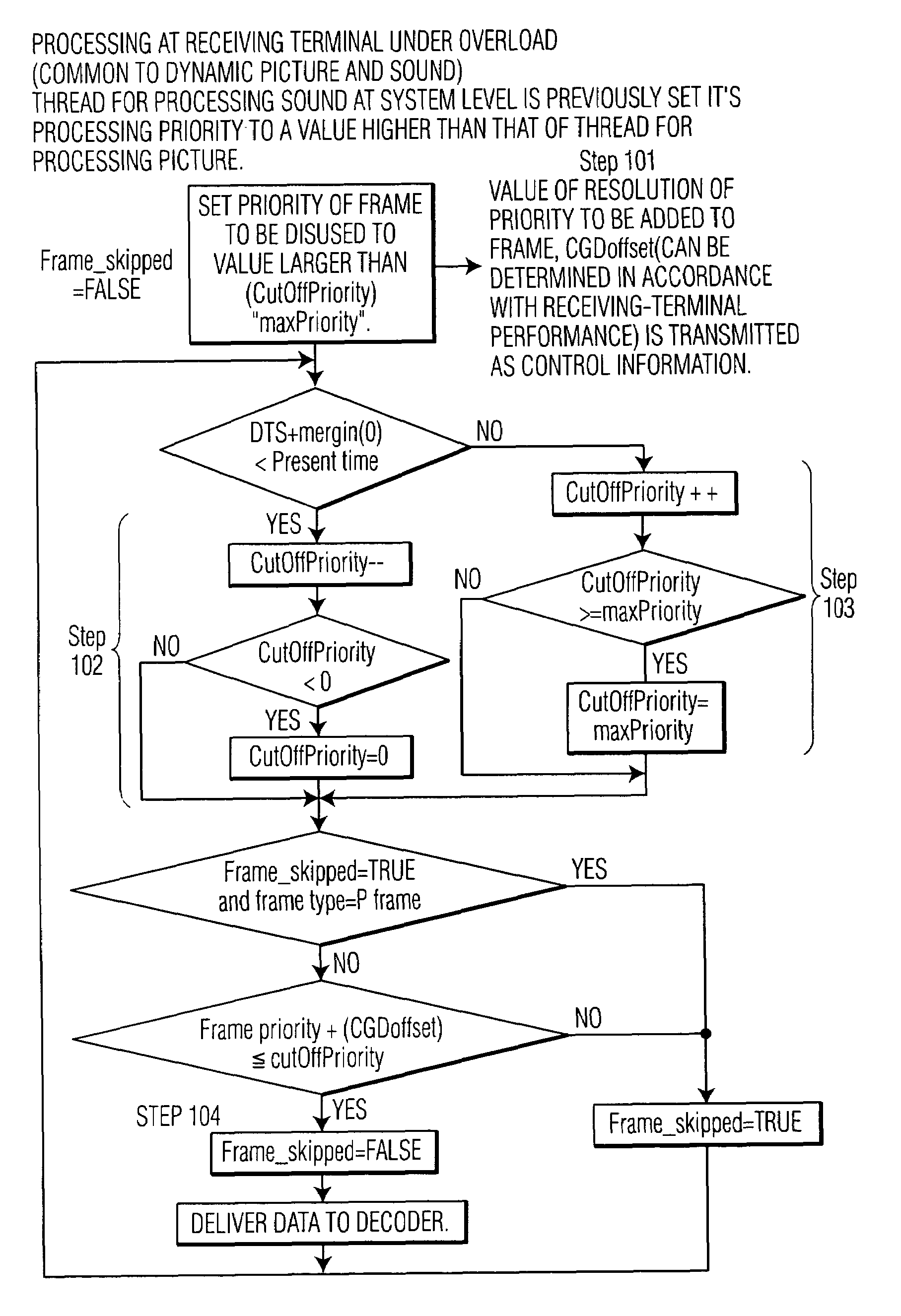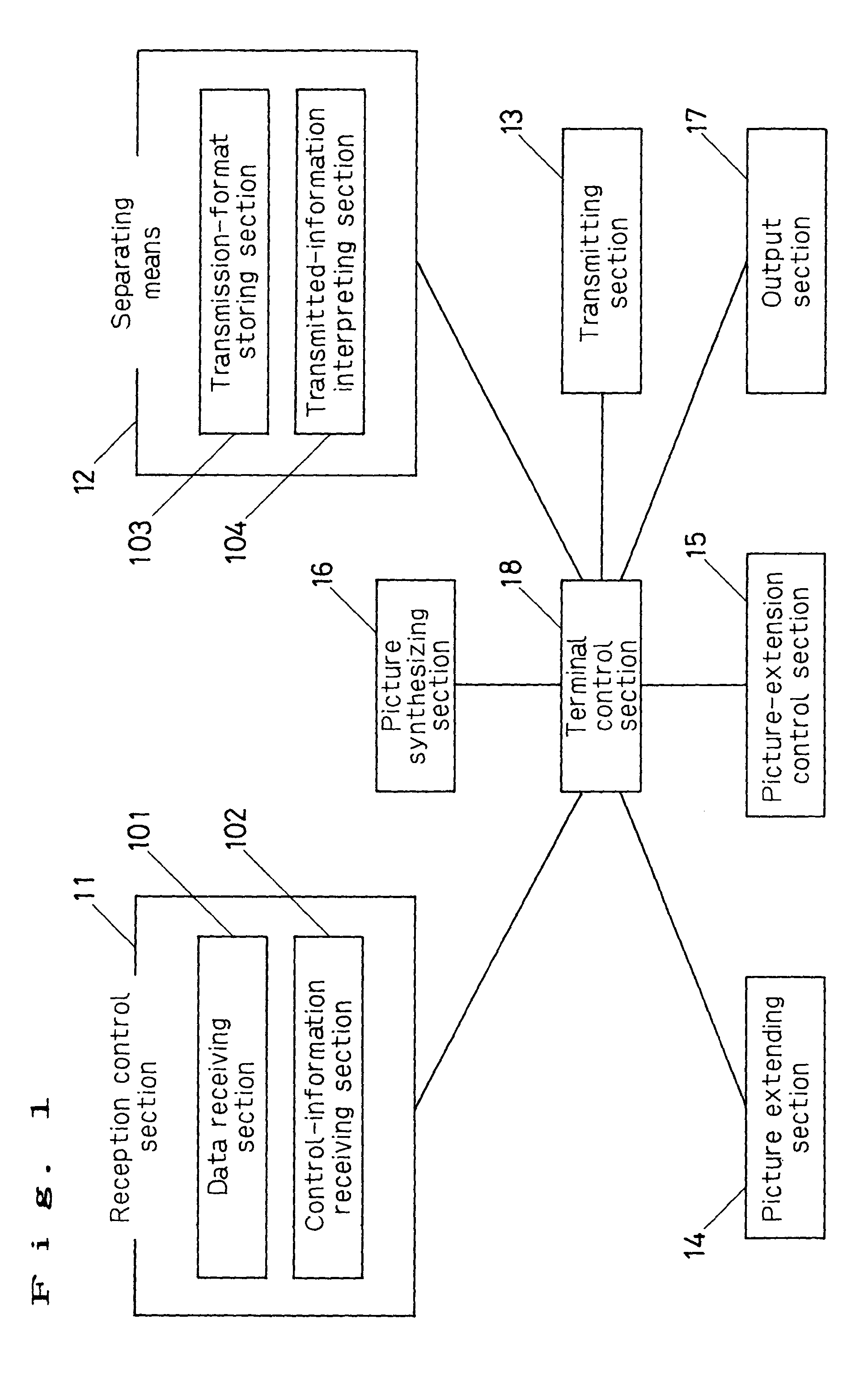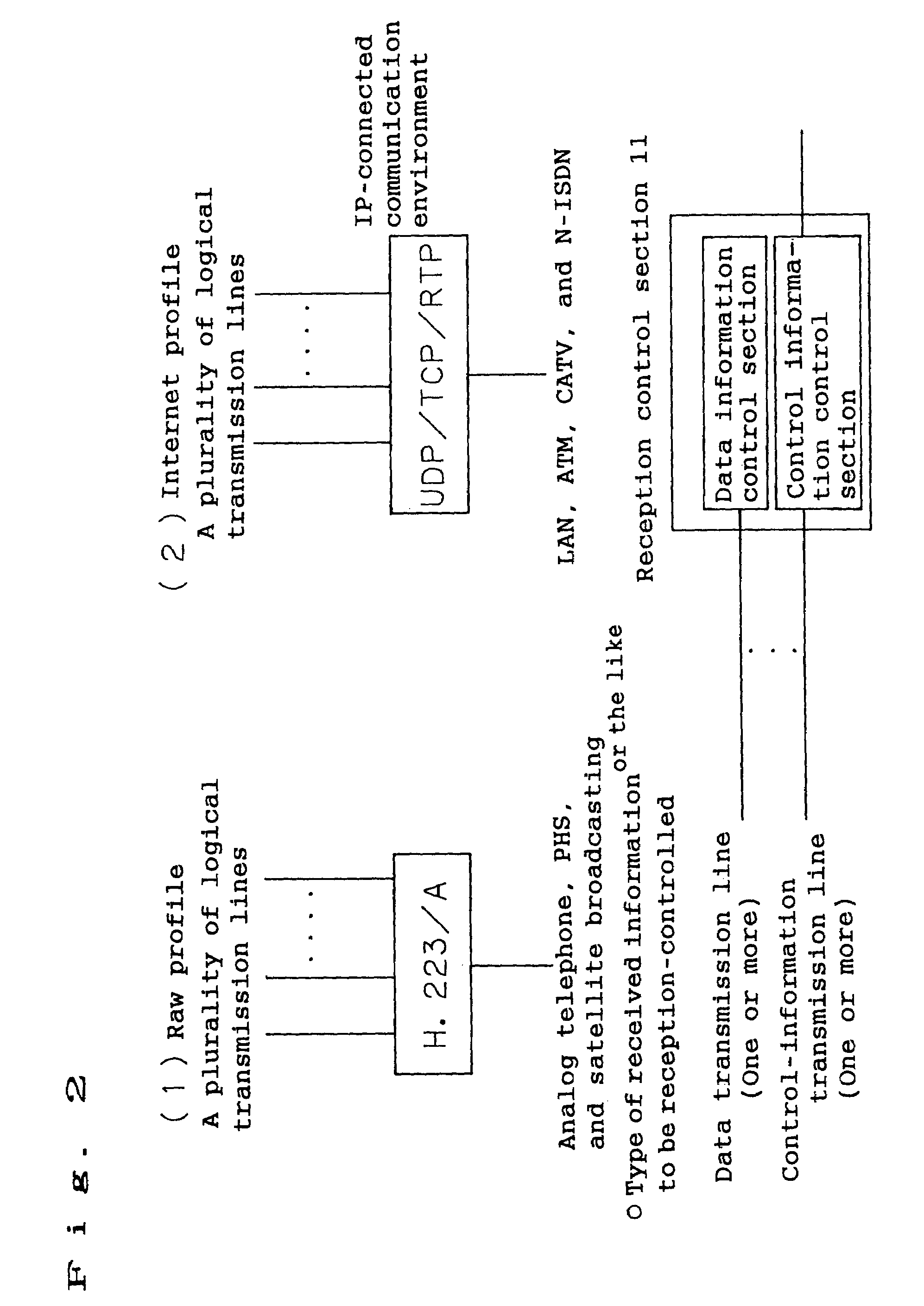Method and apparatus for transmitting encoded information based upon priority data in the encoded information
a technology of encoded information and priority data, applied in the field of audiovideo transmitter and audiovideo receiver, data processing apparatus and method, waveformdatatransmitting method and apparatus, can solve the problems of difficult to preponderantly reproduce an important scene cut synchronously with audio, no specific discussion performed, etc., and achieve the effect of keeping the delay small
- Summary
- Abstract
- Description
- Claims
- Application Information
AI Technical Summary
Benefits of technology
Problems solved by technology
Method used
Image
Examples
first embodiment
[0416]FIG. 33 shows the structure of the transmitter of the Symbol 2101 denotes a picture-input terminal and the size of a sheet of picture has 144 pixels by 176 pixels. Symbol 2102 denotes a video encoder that is constituted with four components 1021, 1022, 1023, and 1024 (see Recommendation H.261).
[0417]Symbol 1021 denotes a switching unit for dividing an input picture into macroblocks (a square region of 16 pixels by 16 pixels) and deciding whether to intra-encode or inter-encode the blocks and 1022 denotes movement compensating means for generating a movement compensating picture in accordance with the local decoded picture which can be calculated in accordance with the last-time encoding result, calculating the difference between the movement compensating picture and an input picture, and outputting the result in macroblocks. Movement compensation includes halfpixel prediction having a long processing time and fullpixel prediction having a short processing time. Symbol 1023 de...
second embodiment
[0421]FIG. 40 is a flowchart of the transmitting method of the
[0422]Because operations of this embodiment are similar to those of the first embodiment, corresponding elements are added. A picture is input in step 801 (picture input terminal 2101) and the picture is divided into macroblocks in step 802. Hereafter, processings from step 803 to step 806 are repeated until the processing corresponding to every macroblock is completed in accordance with the conditional branch in step 807. Moreover, when each processing is executed so that frequencies of the processings from step 803 to step 806 can be recorded in specific variables, a corresponding variable is incremented by 1.
[0423]First, it is decided whether to intra-encode or inter-encode a macroblock to be processed in step 803 (switching unit 1021). When inter-encoding the macroblock, movement compensation is performed in step 804 (movement compensating means 1022). Thereafter, DCT transformation and variable-length encoding are pe...
third embodiment
[0425]FIG. 35 shows the structure of the receiver of the
[0426]In FIG. 35, symbol 307 denotes an input terminal for inputting the output of the transmitter of the first embodiment and 301 denotes receiving means for fetching a variable-length code and a data string through inverse multiplexing in accordance with the output of the transmitter of the first embodiment and outputting them. In this case, it is assumed that the time required to receive the data for one sheet is measured and also output.
[0427]Symbol 303 denotes a decoder for a video using a variable-length code as an input, which is constituted with five components. Symbol 3031 denotes variable-length decoding means for fetching a DCT coefficient and other encoded information from a variable-length code, 3032 denotes inverse orthogonal transforming means for applying inverse DCT transformation to a DCT coefficient, and 3033 denotes a switching unit for switching an output to upside or downside every macroblock in accordance...
PUM
 Login to View More
Login to View More Abstract
Description
Claims
Application Information
 Login to View More
Login to View More - R&D
- Intellectual Property
- Life Sciences
- Materials
- Tech Scout
- Unparalleled Data Quality
- Higher Quality Content
- 60% Fewer Hallucinations
Browse by: Latest US Patents, China's latest patents, Technical Efficacy Thesaurus, Application Domain, Technology Topic, Popular Technical Reports.
© 2025 PatSnap. All rights reserved.Legal|Privacy policy|Modern Slavery Act Transparency Statement|Sitemap|About US| Contact US: help@patsnap.com



